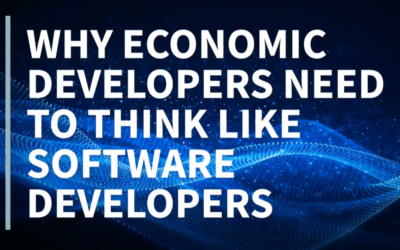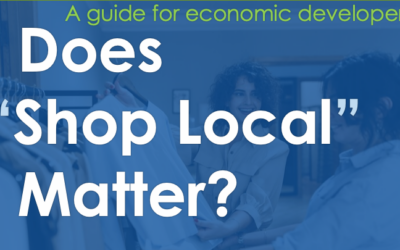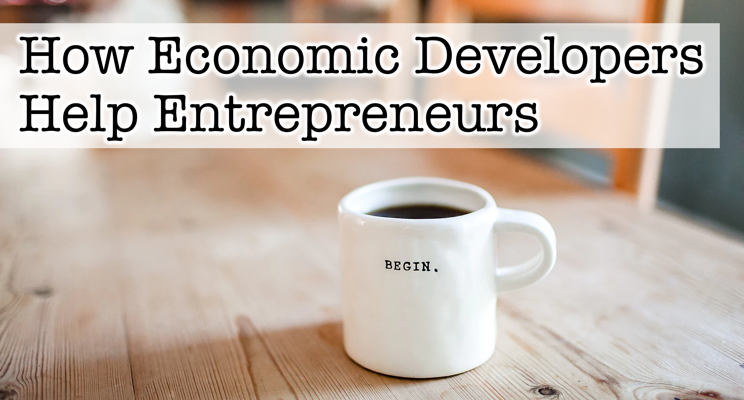
A healthy local economy requires the addition of new businesses and the growth of existing companies to replace closing businesses. Companies currently operating in your community may close because of bad ideas, market changes, mismanagement, retirement, disaster, or other causes. While there are many reasons why a business may close, over some period of time, eventually all companies end. Therefore, these inevitable closures require replacement to maintain a sustainable local economy.
There are three primary ways that Economic Development Organizations (EDO) foster economic development: 1. business attraction, 2. business retention/expansion, and 3. entrepreneurship. Each strategy is different, delivers different types of outcomes, and requires different solutions.
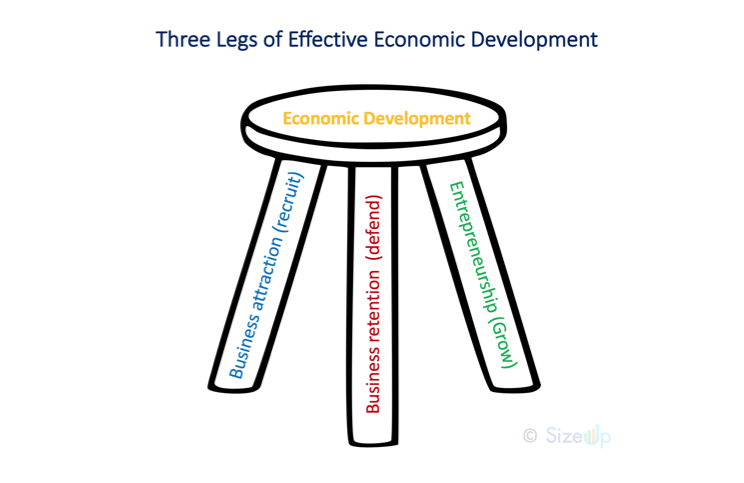
- Business attraction is an economic development strategy based on recruitment. It typically either involves bringing domestic companies from outside of the region the EDO serves or foreign companies through Foreign Direct Investment (FDI). Implementing business attraction is typically a combination of marketing and EDpros taking outside meetings with companies at their location or at conferences.
- Business retention and expansion (BRE) is a defensive strategy focused on keeping the businesses currently in your community and helping them succeed. It has a much larger number of businesses that can be served. However, many BRE programs which are staff-intensive are limited in the actual number of businesses that can be served. This is apparent in BRE programs with a focus limited to the largest employers or businesses most likely to grow.
- Entrepreneurship is a strategy based on growing new businesses. It requires entrepreneurs that develop viable businesses that meet current market needs or which invent products or services which meet new needs. This approach has a foundation built on the existing residents of the community which want to run their own businesses.
Although business attraction and business retention/expansion programs are standard programs staffed, funded, and implemented in economic development organizations, entrepreneurship assistance is less common, partly because economic development professionals may not know how they can best serve this essential customer base necessary for a sustainable local economy.
A focus on entrepreneurship is necessary for EDOs because the economic trend toward entrepreneurship and self-employment is happening quickly and having a significant impact on the economy. In 2017, 126 million Americans worked in full-time jobs. By 2020, 42 million people will be self-employed. No effective EDO can succeed if it is unfocused on a major segment of the employment market.
Young companies create an average of 3 million new jobs a year and have been responsible for almost all net new job creation in the United States in the last forty years.
Entrepreneurial business growth is increasing compared to pre-recession levels and startups are growing faster in their first five years then they did in the past. (Source: Kauffman Foundation 2017 Index)
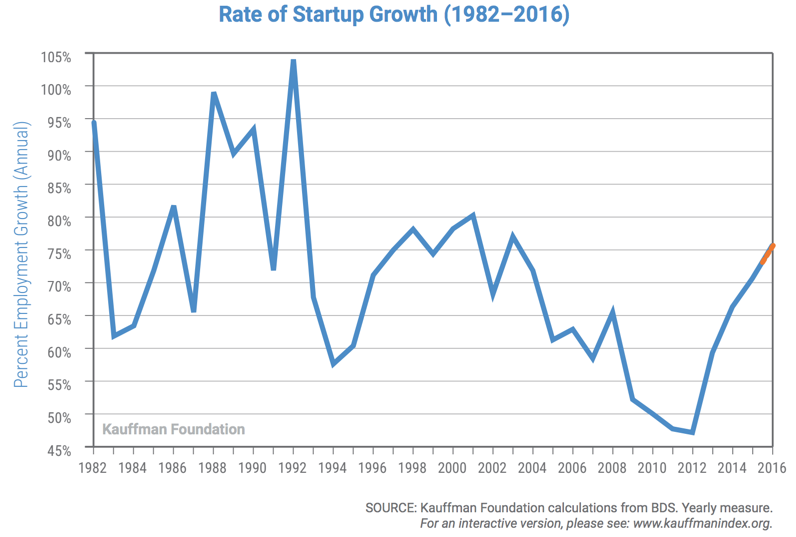
USA-based economic developers have a built-in advantage for supporting successful entrepreneurship because the entrepreneurship ecosystem is strongest in the USA and on-campus entrepreneurship programs in local colleges are growing rapidly.
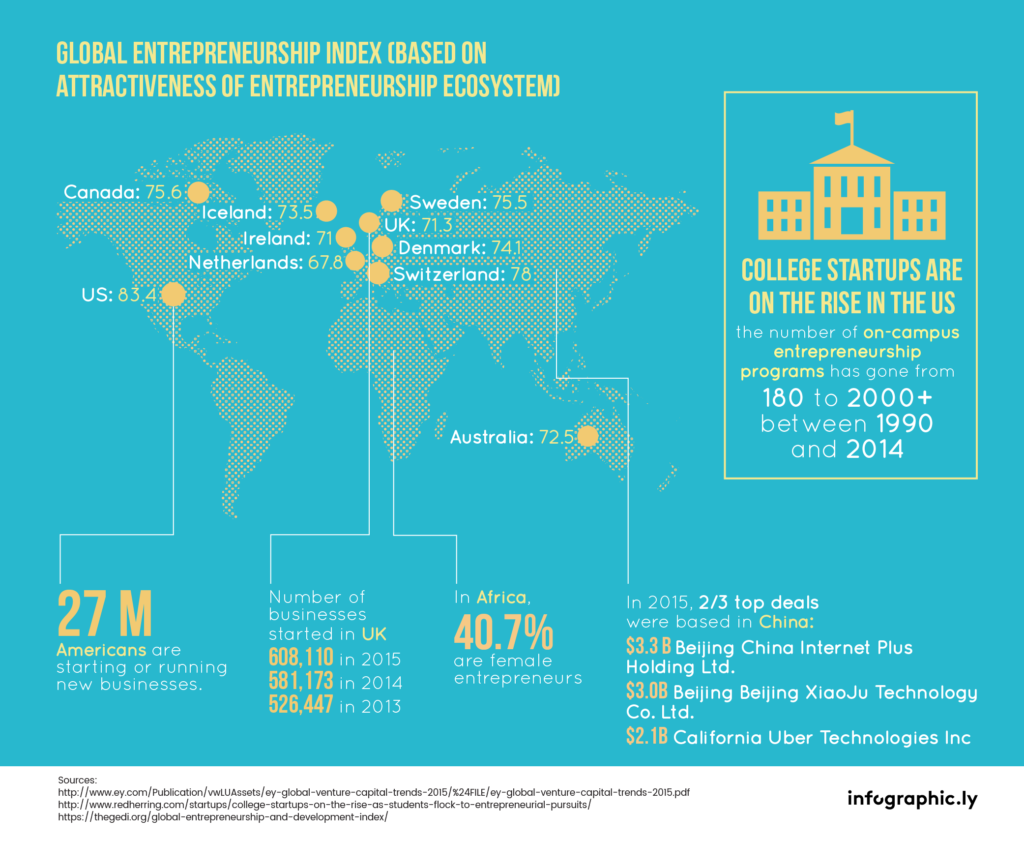
Here are 5 things you can do to create an economic development organization that support entrepreneurship:
1. Make Starting Easier
There are three basic things that an entrepreneur needs to get started and all of them are things economic developers can help improve.
- Government – If you have never started a business in your community you don’t deeply understand the challenges an entrepreneur faces just to get started. One way for you to better understand is to have empathy for what they face. You can do this by shadowing a local entrepreneur thought the process. When you see the challenges they face, you can respond to improve these processes. You may discover that the process of getting a permit to open is so long it can deplete a business owner’s savings while they wait. Or you may observe that certain governmental requirements may not make sense.
- Finance – The common saying goes “You need money to make money” and entrepreneurs starting a business face this challenge from the start. Your EDO needs to be able to help these entrepreneurs to learn how to access financing from a variety of different options including friends/family, SBA loans, traditional bank loans, angel investors, venture capitalists, and crowd-sourced loans.
- Space – Although some businesses may be able to start from a home office or a garage, others need an office, manufacturing space, or retail storefront for their business. It needs to be easy for the business to find a property that is the ideal location to optimize their success. It is now common that EDOs provide online site selection analysis services on their websites.
2. Incubators and Accelerators
Business incubators have been around for many years to help entrepreneurs by providing a physical location with shared services to help companies get started and become stable enough to venture out on its own. They reduce costs by having shared office resources such as telephone, internet, meeting rooms, and reducing initial capital investments in items such as office equipment. In addition, they may provide educational training to tenants about the basics of operating a business.
The concept of a business incubator has become so successful that the private sector is now leading this approach through “co-working” spaces. Companies like WeWork co-working and office space provide many of the same benefits of traditional business incubators.
The advantages of incubators are clear and the trend toward self-employment and co-working make the importance of EDOs fostering incubators in their communities even more essential.
Another type of physical entrepreneurship space is the Business Accelerator. These are typically designed to help an early stage business with the potential to grow much more rapidly to do so with direct assistance. These accelerators tend to focus more on high technology startups. They are located at universities and are now also more commonly led by private sector ventures that bring in venture capital and make corporate introductions for the startups. Examples of these types of accelerators include Plug and Play, 500 Startups, and Y Combinator.
The challenge for some EDOs is that many accelerators are in the largest metro areas and most dynamic economies of the country, so there is a possibility that the participating business may remain in the metro in which it is accelerated. This is evidence why having local accelerators is important.
3. Add Online Services
Entrepreneurs need information so that they can be more successful and make smarter decisions. However, unlike large corporations that can hire management consultants or staff internal researchers, entrepreneurs that are starting a business typically cannot afford to access the business intelligence they need to create a business plan, test their hypotheses about their industry, leverage data to find customers and suppliers, or develop an effective marketing initiative.
Fortunately, EDOs are now empowered to provide market research and small business intelligence to their local entrepreneurs by implementing SizeUp LBI on the EDO’s own website. The service provides big data to small businesses which can be used as they develop a business plan, estimate their performance relative to other local businesses, find customers, and target marketing to ideal client audiences. This SizeUp technology can be quickly, affordably, and effectively implemented by a state, regional, or local EDO.
4. Education
Entrepreneurs often lack any formal background in business. Yet to have a sustainable business requires some basic business knowledge including the basics of accounting, human resources, law, marketing, and sales. Although EDOs do not need to provide this training, because their offices are a nexus for new businesses, they should connect entrepreneurs with the organizations that provide business training such as libraries, small business development centers, and community colleges.
5. Prioritize Entrepreneurship
There are three legs of the economic development stool. Business attraction and BRE get staffing and funding at many EDOs. But fewhave a staff person dedicated to entrepreneurship and supporting early stage companies. Yet without entrepreneurship the economic development stool is unbalanced and fragile. Entrepreneurs are found in every industry and their unique view of how to make the world better leads to industry disrupting innovations that lead to meaningful capital investment, job creation, and wealth generation in the communities they get started.
It is essential for a modern economic development organization to commit to growing entrepreneurship in their community by hiring staff to focus on it, developing programs to foster an entrepreneurial ecosystem, and funding the strategies to enable entrepreneurship to flourish.

